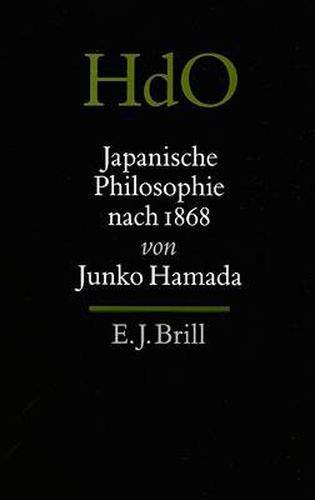Readings Newsletter
Become a Readings Member to make your shopping experience even easier.
Sign in or sign up for free!
You’re not far away from qualifying for FREE standard shipping within Australia
You’ve qualified for FREE standard shipping within Australia
The cart is loading…






This volume deals with philosophical trends in Japan from the beginning of the Meiji era (1868) to the present, in connection with European philosophy. The first chapter follows philosophical trends up to 1945. It considers the question of how the Japanese received the European philosophy known as liberation and enlightenment. They soon began to develop their own philosophy, in particular under the influence of German idealism, for instance in the work of Nishida, Tanabe, Miki, Kuki and Watsuji. The trend makes a 180-degree turn in 1945. The experiences of a defeated Japan lead to a confrontation with the self and all existing selves; it is once more a liberation and a new tendency, from reason to body occurs, as, for instance, in Nakamura Hajime, Izutsu Toshihiko and Yuasa Yasuo.
$9.00 standard shipping within Australia
FREE standard shipping within Australia for orders over $100.00
Express & International shipping calculated at checkout
This volume deals with philosophical trends in Japan from the beginning of the Meiji era (1868) to the present, in connection with European philosophy. The first chapter follows philosophical trends up to 1945. It considers the question of how the Japanese received the European philosophy known as liberation and enlightenment. They soon began to develop their own philosophy, in particular under the influence of German idealism, for instance in the work of Nishida, Tanabe, Miki, Kuki and Watsuji. The trend makes a 180-degree turn in 1945. The experiences of a defeated Japan lead to a confrontation with the self and all existing selves; it is once more a liberation and a new tendency, from reason to body occurs, as, for instance, in Nakamura Hajime, Izutsu Toshihiko and Yuasa Yasuo.